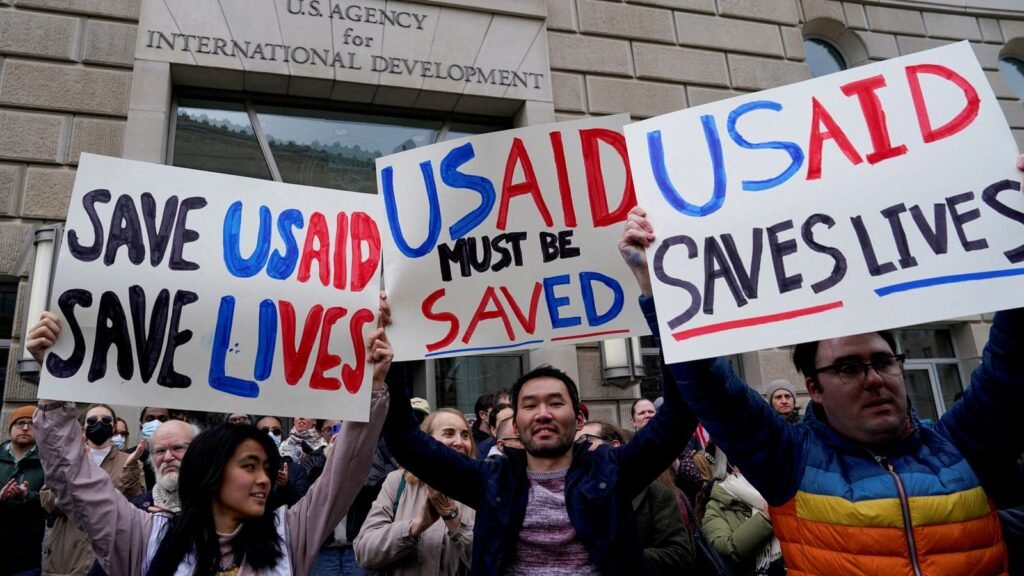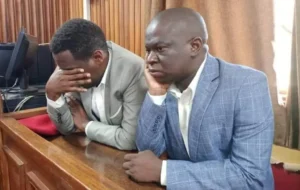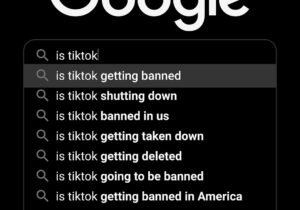Early 2025, the Trump administration issued an executive order to cut off U.S. foreign aid, including USAID. The reasoning, for those of us who missed the memo, was to Reevaluate and Realign United States Foreign Aid to put America first. The result? Well, across Africa, shaking humanitarian efforts, public health initiatives, and economic stability to say the least. And while the devastation and chaos and worry have been very much on everyone’s mind–things like Aids programs and food initiatives going stale and stagnant, to others the question has been more on “could this be our ticket to self-sustenance?” As in, quite often you will hear an African attributing their state’s state to the exploits of the west, and true, as an African myself I can attest to the fact that many an African country can no longer revert to their native way of doing things. But, now that the ever-present helping hand of the “father” is absent, could Africa learn to spread her wings, unclench her claws and hunt her own worm from the dirt?
Immediate Effects of the USAID Ban
For decades, USAID has been the sole lifeline for millions in Africa. In fact, I am quite the way through my youth and I just can’t recall a time without USAID. It has always been there, from funding HIV/AIDS treatments to supporting emergency medical relief, its influence was undeniable. But with the abrupt funding cuts, the consequences have been nothing short of catastrophic.
HIV/AIDS Programs Left Hanging: The President’s Emergency Plan for AIDS Relief (PEPFAR), a major initiative providing antiretroviral therapy (ART) to many, took the first hit. In Uganda for instance, organizations like TASO that offer lifesaving HIV treatment are now struggling to sustain their services as the budgets were solely funded by the USAID. Tens of thousands could be left without medication, risking a resurgence of the epidemic.
Famine and Food Insecurity Worsened: South Sudan, already reeling from civil war and famine, came next. USAID had been providing food assistance to millions. Now, families are left without essential supplies, pushing the region toward an intensified humanitarian disaster.
Healthcare Systems failing: In Nigeria, medical programs that provided vaccines, maternal healthcare, and emergency services have been severely impacted. The result? As you can imagine, increased child mortality rates, overwhelmed hospitals, and a setback in efforts to eradicate diseases like malaria and tuberculosis.
Past the immediate humanitarian crisis, the USAID cuts have also shaken up Africa’s economy. I mean, growing up one could always hear the big ups wishing for a job in the USAID or any such organisation. “if you can secure a job there, however simplistic, take it…there’s money there…” or something like that and truth to point, the USAID and affiliates have been a great source of employment to the locales they settle. Now, with humanitarian organizations like Save the Children and World Vision forced to shut down operations in some regions, thousands of jobs are now lost. This isn’t just about aid—it’s about economic stability for local workers who depended on these programs.
Investment and Trade Declines: With USAID’s financial backing gone, many infrastructure and development projects are on hold. Countries like Ethiopia and Kenya, which benefited from U.S.-funded entrepreneurship programs, are now seeing a slowdown in business growth and foreign direct investment.
Agriculture and Food Security are also Under Threat: Farming programs that promoted sustainable agriculture and food security have been disrupted. Without funding, millions of small-scale farmers are struggling to maintain production, further worsening food shortages.
How the USAID Ban Can be an Opportunity for Africa.
But while the cuts have undeniably caused hardship, they also present their own kind of opportunity…after all, such is the nature of opportunity–it comes when you least expect it. That said, can African nations outgrow the dependency and build self-sustaining economies?
Experts argue that African governments must now focus on improving tax collection and revenue generation to fund their own social programs. Countries like Rwanda have already made progress in reducing reliance on foreign aid through better governance and internal resource mobilization, however, with some countries already facing heavy taxation but with no progress to show for it, majority believe that many an African country could better their finances if they can sort their corruption and embezzlement first.
Encouraging Local Investment: With international aid dwindling, African nations need to attract local and diaspora investments to stimulate growth. This means creating policies that favor small businesses, startups, and homegrown innovations instead of focusing on investors from overseas whose capital can easily be snuffed out by such mandates as America’s executive order.
Partnerships Beyond the West: China, the EU, and even African intra-continental partnerships are becoming more critical for Africa. Countries must diversify their sources of funding and trade to avoid over-reliance on any one donor.
That said, the USAID cuts have undoubtedly placed millions of lives at risk, they have also sparked critical conversations about Africa’s future. The reality is that foreign aid, while beneficial, was never meant to be a permanent solution; it is mere aid after all. If Africa can utilize this crisis as a turning point, an opportunity of sorts to better her respective nation’s inner workings, it may come out stronger, more independent, and better positioned for long-term growth.
But then again, the international community will always have its role to play. Advocacy for humanitarian funding, global partnerships, and continued foreign investment must remain a priority, because in the end, everyone needs a helping hand here and there. a sort of “aid,” but ultimately, the fate of Africa lies in its own hands.
Is the USAID ban a disaster or a long-overdue wake-up call? Well, I am no world leader, but perhaps the answer lies in how we respond. If we sit around waiting for the father’s hand to hold us again, then I assure you by that time we will have a broken arm, a broken leg and a few bruised ribs to show for the wait. If, however, we ditch the training wheels and pedal like our lives depend on it, we will find our balance eventually. True, we will have some scars and stories to tell for it, but they will be stories worth telling.
For more on how the USAID evaluation is progressing, check out – Secretary of State Rubio says purge of USAID programs complete, with 83% of agency’s programs gone. Or you could browse more of our Politics section.




